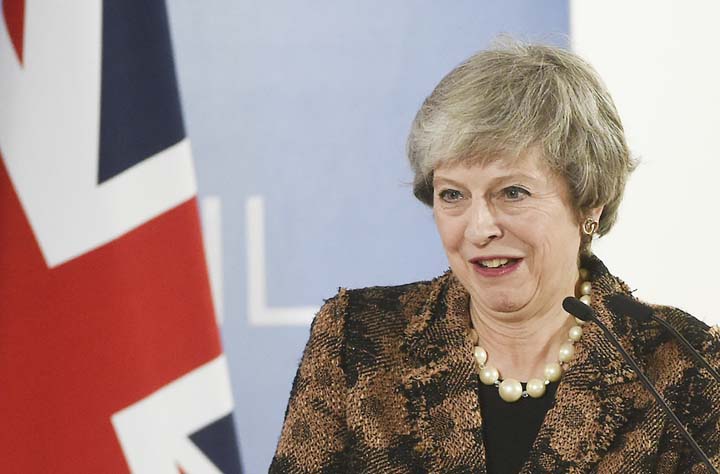
Reuters, London :
Prime Minister Theresa May will state her opposition to a second Brexit referendum on Monday, telling parliament such a vote would “break faith” with British people and do “irreparable damage” to politics.
With May facing deadlock in parliament over her deal to leave the European Union and the bloc offering little in the way of concessions to win lawmakers over, more politicians are calling for a second referendum to break the impasse.
But May and her ministers have ruled out a new ballot, saying it would deepen already ugly divisions over Britain’s biggest decision since World War Two and betray voters who narrowly backed leaving the EU at a 2016 referendum.
That increases the risk of Britain leaving without a deal in less than four months, a scenario some businesses fear would be catastrophic for the world’s fifth largest economy.
“Let us not break faith with the British people by trying to stage another referendum,” May will tell lawmakers, according to extracts of her speech released in advance.
“Another vote which would do irreparable damage to the integrity of our politics, because it would say to millions who trusted in democracy, that our democracy does not deliver. Another vote which would likely leave us no further forward than the last,” she will say.
May returns to parliament after a visit to Brussels last week where she called on EU leaders to offer assurances over the so-called Northern Irish “backstop” – an insurance policy to prevent the return of a hard border between the British province and Ireland that its critics fear will trap Britain.
But while EU leaders said they were willing to help May, they warned the British prime minister she could not renegotiate the deal, agreed earlier this year.
Britain voted to leave the European Union in a referendum in 2016 and is set to leave on March 29 next year, although May is struggling to get parliament to accept a divorce agreement she struck last month.
May has faced calls for a second referendum to resolve the impasse but has argued that this would betray the 2016 result and undermine public confidence in politics.
Campaigners for a referendum said May’s comments on Monday showed that the idea is being taken seriously.
“A new public vote would be different from the referendum in 2016 because we now know more about what Brexit means,” said Margaret Beckett, an MP from the main opposition Labour Party and “People’s Vote” supporter.
“Any effort to force Brexit over the line without checking that it has the continued consent of the British people will only reinforce divisions,” she said.
Dozens of MPs from all the main parties also support a second referendum, as do former prime ministers John Major and Tony Blair.
There have also been reports that government officials are considering giving the public a vote.
May has delayed a crucial vote by MPs on the draft Brexit deal until next month, leaving the political scene in limbo.
If parliament fails to approve the text, Britain will crash out of the European Union regardless – a prospect that experts warn could lead to serious trade disruption and trigger a financial crisis.
But former foreign secretary Boris Johnson, a leading Brexit campaigner, said anyone considering a second referendum was “out of their minds”.
“A second referendum would provoke instant, deep and ineradicable feelings of betrayal,” he wrote on Monday in his weekly column in the Daily Telegraph. On Sunday she said Mr Blair’s backing for another referendum was “an insult to the office he once held” and risked undermining Brexit negotiations.
Business Secretary Greg Clark echoed the prime minister’s comments on BBC Radio 4’s Today Programme, arguing that a fresh vote would “continue uncertainty”.
He also said, that if Parliament did not approve Mrs May’s deal, it should be “invited to say what it would agree with” on a Brexit deal.
“Businesses expect MPs to take responsibility rather than just be critics,” Mr Clark added.

